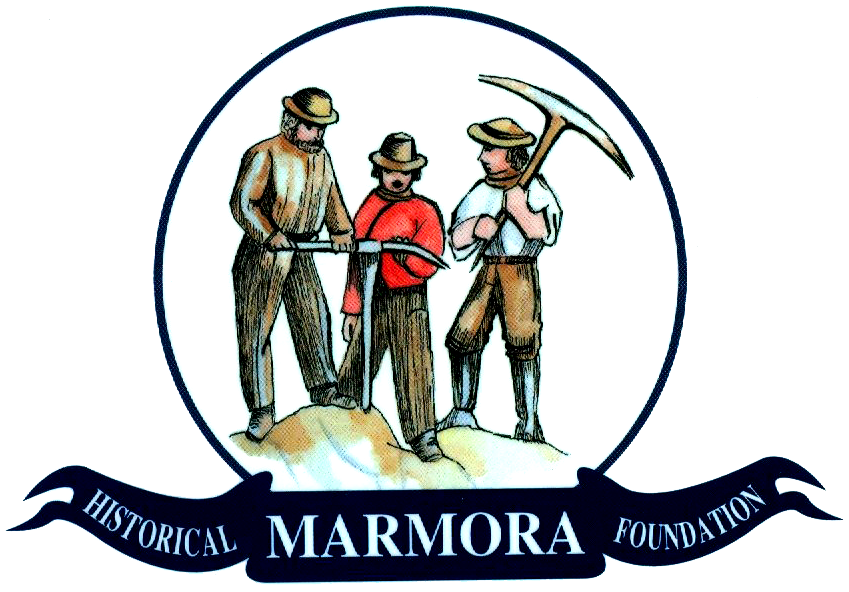CONFEDERATION - MARMORA IN 1867
/In 1867 patriotism was all aglow both throughout the country and in Marmora. The Marmora Iron Works had amalgamated with the Cobourg and Marmora Railway Company and the future looked good. Marmora may not have been as busy as in the first days of the Hayes Ironworks, but it was still known all over Canada and in many parts of the Old World.
Indeed the Village was referred to coloquially as "The Works" by residents near and far. In the spirit of the times, Mrs. M. Brady, 'widow', opened the "New Dominion Hotel". James Albert. and Joseph Wellington Campion started a new hardware store and as well sold sundries, crockery, boots and shoes "at prices that defy competition". The competition was A.M. Chisholm who advertised in reply that he had the largest and best stock, "and as cheap as any establishment in Town or City".
George William Bleecker 1824-1895
Sarah Gladney Meath and daughter, Sarah
There were at least five blacksmiths to shod your horses and four shoemakers to take care of your own feet. Down Forsyth Street, George W. Bleecker ran a 'manor house', G.L. Houston was a carpenter, and John Downy was a teamster. On Main Street the Pearce family started covering the ledge beside the river with new stone buildings. On McGill Street, Hough and Loucks sold dry goods and paid high prices for 'Grain, hides, butter and potash'. The Warren family made carriages, wagons, and farming implements- all' promptly and neatly done'. Marmora was a complete and industrious little centre and no doubt proud of it. Indeed everything seemed to be about to boom even more. A new grist mill was being completed by "Messrs. Pearce and Son". It was a fine building, .three stores high, with 'two run of stone, and all the machinery of a first-class flouring mill'.
Over the next few years a saw mill and a carding and woolen mill would be built. Slowly the water power of the Crowe River would be used again, this time by the Pearce Family to found a large enterprise extending northward miles into the bush and southward to Cobourg.
On Confederation Day itself the newly combined Cobourg, Peterborough and Marmora Railway and Mining Co. advertised in the Daily Globe for "400 quarrymen, miners and labourers, to whom permanent employment will be given at the Company's Ore Bed and Works, at Marmora". Mr. Bentley was the manager at Marmora. That year the company would see the first load of ore head off to the United States, pulled by the Marmora "Pioneer"

